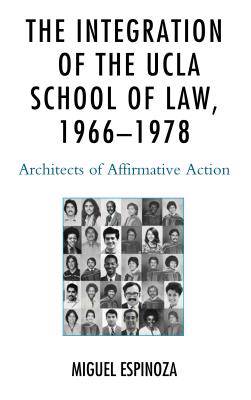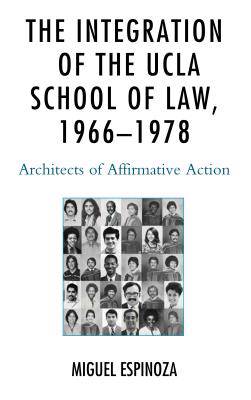
- Afhalen na 1 uur in een winkel met voorraad
- Gratis thuislevering in België vanaf € 30
- Ruim aanbod met 7 miljoen producten
- Afhalen na 1 uur in een winkel met voorraad
- Gratis thuislevering in België vanaf € 30
- Ruim aanbod met 7 miljoen producten
Zoeken
The Integration of the UCLA School of Law, 1966--1978
Architects of Affirmative Action
Miguel Espinoza
Hardcover | Engels
€ 249,45
+ 498 punten
Omschrijving
In 1966, a group of UCLA law school professors sparked the era of affirmative action by creating one of the earliest and most expansive race-conscious admissions programs in higher education. The Legal Education Opportunity Program (LEOP) served to integrate the legal profession by admitting large cohorts of minority students under non-traditional standards, and sending them into the world as emissaries of integration upon graduation. Together, these students bent the arc of educational equality, and the LEOP served as a model for similar programs around the country. Drawing upon rich historical archives and interviews with dozens of students and professors who helped integrate UCLA, this book argues that such programs should be reinstituted-- and with haste-- because affirmative action worked.
Specificaties
Betrokkenen
- Auteur(s):
- Uitgeverij:
Inhoud
- Aantal bladzijden:
- 412
- Taal:
- Engels
Eigenschappen
- Productcode (EAN):
- 9781498531627
- Verschijningsdatum:
- 15/12/2017
- Uitvoering:
- Hardcover
- Formaat:
- Genaaid
- Afmetingen:
- 157 mm x 231 mm
- Gewicht:
- 857 g

Alleen bij Standaard Boekhandel
+ 498 punten op je klantenkaart van Standaard Boekhandel
Beoordelingen
We publiceren alleen reviews die voldoen aan de voorwaarden voor reviews. Bekijk onze voorwaarden voor reviews.











